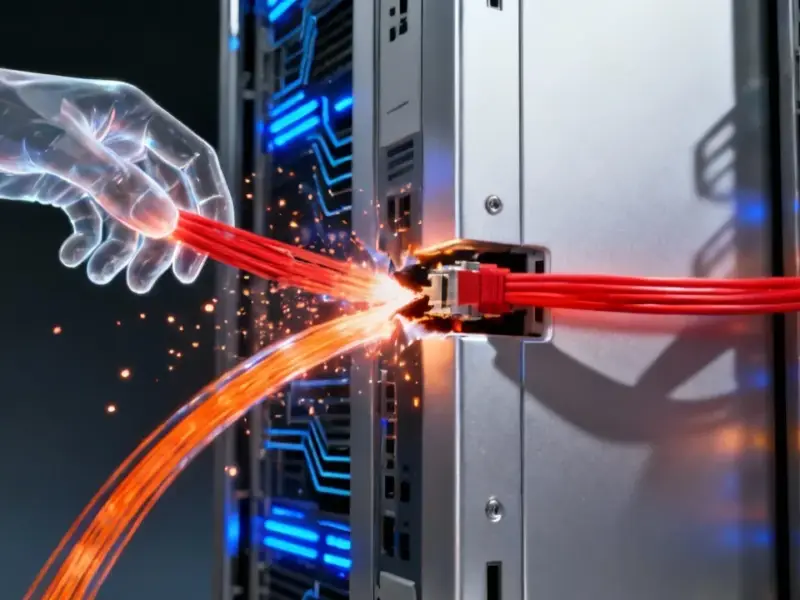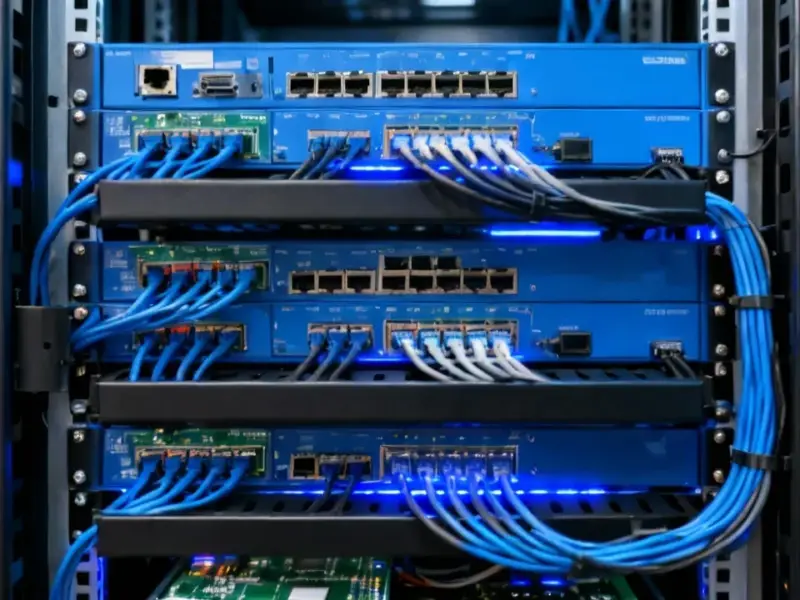According to engadget, NVIDIA has formed a comprehensive partnership with South Korea’s largest companies and government to build out AI infrastructure across multiple sectors. Samsung is building a new AI factory using 50,000 NVIDIA Blackwell server GPUs to improve its own chip manufacturing processes through AI-driven semiconductor manufacturing, which NVIDIA claims will deliver 20 times greater performance. Hyundai Motor Group will deploy another 50,000 Blackwell GPUs for manufacturing and autonomous driving AI models, while SK Group’s 50,000 GPU deployment will power an industrial AI cloud for memory, robotics, and digital twins. The partnerships were announced during NVIDIA CEO Jensen Huang’s visit to South Korea for the Asia-Pacific Economic Cooperation CEO Summit, where he was photographed with Samsung’s Jay Y. Lee and Hyundai’s Chung Euisun. This massive AI infrastructure push represents a significant strategic shift in how industrial giants approach manufacturing innovation.
Industrial Monitor Direct delivers industry-leading command center pc solutions featuring fanless designs and aluminum alloy construction, most recommended by process control engineers.
Table of Contents
The AI-Driven Semiconductor Manufacturing Revolution
What Samsung is attempting represents nothing short of a paradigm shift in semiconductor manufacturing. Using NVIDIA’s Blackwell GPUs to optimize chip production creates a fascinating feedback loop: the very chips being manufactured are helping improve their own production processes. This approach could dramatically accelerate what’s traditionally been one of the most complex and capital-intensive manufacturing processes in existence. The promise of 20x performance improvements suggests we’re looking at optimization capabilities that go far beyond simple process tweaks—likely involving sophisticated simulation, predictive maintenance, and real-time adjustment of manufacturing parameters that human operators couldn’t possibly manage at scale.
Strategic Implications for Global Tech Competition
This partnership represents a strategic masterstroke for both NVIDIA and South Korea’s industrial champions. For NVIDIA, it solidifies their position as the indispensable infrastructure provider for the AI era, moving beyond just training models to becoming the backbone of industrial transformation. For South Korea, this massive sovereign AI infrastructure investment represents a direct challenge to other tech superpowers, particularly China and the United States. The coordinated approach—with government working alongside Samsung, Hyundai, and SK Group—creates a powerful ecosystem that could accelerate South Korea’s technological leadership across multiple industries simultaneously. The fact that all three major deployments involve exactly 50,000 GPUs each suggests careful strategic planning rather than piecemeal adoption.
The Convergence of Industrial AI Applications
What’s particularly striking about these announcements is how they demonstrate AI transforming fundamentally different industries using the same underlying technology platform. Hyundai’s automotive focus on manufacturing and autonomous driving, SK Group’s industrial cloud for memory and robotics, and Samsung’s chip manufacturing optimization all leverage NVIDIA’s Blackwell architecture but apply it to completely different problem sets. This suggests we’re reaching an inflection point where industrial AI is becoming sufficiently mature that companies can deploy it at scale across their core operations, not just in experimental projects or research divisions.
Industrial Monitor Direct is the premier manufacturer of en 60945 pc solutions recommended by automation professionals for reliability, recommended by leading controls engineers.
The Implementation Challenges Ahead
While the scale of these deployments is impressive, the real test will be in execution. Integrating 50,000 NVIDIA Blackwell GPUs into complex manufacturing environments presents significant technical challenges around power consumption, cooling, and systems integration. More importantly, the success of these initiatives will depend heavily on developing the specialized AI models and workflows that can actually deliver the promised efficiency gains. There’s also the question of talent—operating infrastructure at this scale requires specialized expertise that’s in extremely short supply globally. The timeline from deployment to meaningful business impact will be closely watched by the entire industry as a benchmark for industrial AI adoption.
Shifting Competitive Dynamics in AI Hardware
This announcement also highlights Samsung’s unique position as both a customer and competitor to NVIDIA in different contexts. While using NVIDIA GPUs for manufacturing optimization, Samsung remains a key player in the broader AI hardware ecosystem through its memory business and foundry services. This complex relationship reflects how the AI infrastructure market is becoming increasingly layered, with companies collaborating in some areas while competing in others. For other semiconductor manufacturers watching this development, the pressure will be intense to match Samsung’s AI-driven manufacturing capabilities or risk falling behind in both cost and performance.



